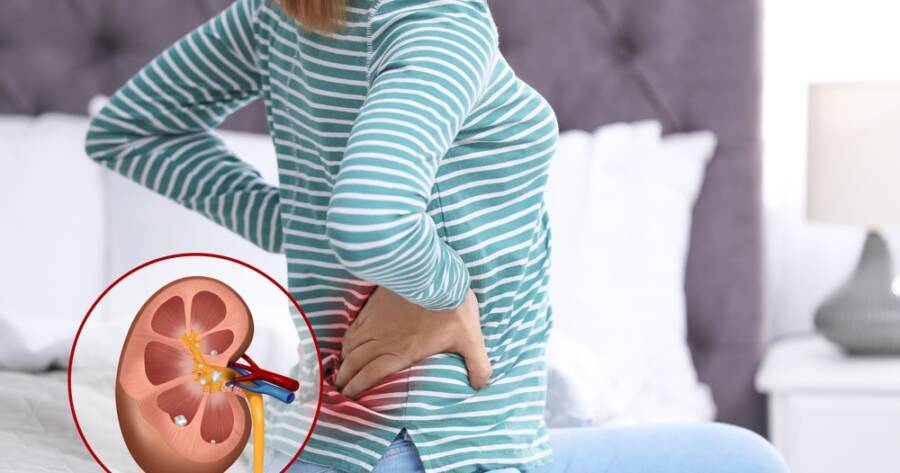Kidney stones are no joke. Fortunately, informed food choices can help you avoid them. Since certain foods and drinks can cause kidney stones, knowledge is power.
Knowing foods that cause kidney stones can help you prevent the condition. This deeper understanding enables you to make precise dietary choices, directly influencing your risk and offering a proactive way to safeguard your health.
What Are Kidney Stones?
Kidney stones are hard deposits that form in the kidneys.1 They are made up of various substances, such as calcium, oxalate, and uric acid. These substances can crystallize and clump together, forming stones of different sizes. Kidney stones can be extremely painful and may require medical intervention to remove.
5 Foods That Can Cause Kidney Stones
While there are several factors that contribute to the formation of kidney stones, diet plays a significant role. Certain foods and drinks can increase the risk of developing kidney stones.2 Here are five potential culprits:
1. Oxalate-Rich Foods
Oxalate is a naturally occurring substance found in many foods. When oxalate combines with calcium in the urine, it can form kidney stones. Foods high in oxalate include spinach, rhubarb, beets, nuts, chocolate, and tea. While it’s important to consume a balanced diet that includes these foods, moderation is key.
2. Sodium
Excessive sodium intake can lead to the development of kidney stones. High levels of sodium in the body can increase the amount of calcium in the urine, which can contribute to stone formation. Processed foods, fast food, and canned soups are often high in sodium. Opt for fresh, whole foods and limit your sodium intake to reduce the risk of kidney stones.
3. Animal Protein
Consuming too much animal protein, such as red meat, poultry, and seafood, can increase the risk of kidney stones. Animal protein can increase the level of uric acid in the urine, which can lead to stone formation. It’s important to balance your protein intake with other food groups and opt for lean sources of protein whenever possible.
4. Sugar and Sweetened Beverages
High sugar intake, especially from sugary beverages like soda and fruit juices, can contribute to kidney stone formation. Sugar can increase the excretion of calcium in the urine, which can lead to stone development. Opt for water, unsweetened tea, or infused water with fresh fruits to stay hydrated without the added sugar.
5. Carbonated Drinks
Carbonated drinks, including soda and sparkling water, can increase the risk of kidney stones. These beverages are often high in phosphoric acid, which can lead to the formation of stones. Additionally, the bubbles in carbonated drinks can cause bloating and discomfort. Limit your consumption of carbonated drinks to reduce the risk of kidney stones.
Smart Eating: Your Defense Against Kidney Stones
Preventing kidney stones starts with smart eating. By making informed food choices, you can reduce your risk of developing these painful stones. Here are some tips to help you eat smart and live well:
- Stay hydrated: Drinking an adequate amount of water throughout the day can help prevent kidney stone formation. Aim for at least 8 cups of water per day.
- Eat a balanced diet: Include a variety of fruits, vegetables, whole grains, and lean proteins in your diet. This will ensure you get all the necessary nutrients while minimizing the risk of kidney stones.
- Limit sodium intake: Opt for fresh, whole foods and avoid processed and packaged foods that are often high in sodium.
- Moderate oxalate-rich foods: While it’s important to include these foods in your diet, consume them in moderation and balance them with other food groups.
- Choose healthy sources of protein: Opt for lean sources of protein, such as chicken, fish and plant-based proteins like beans and lentils.
- Reduce sugar consumption: Limit your intake of sugary beverages and opt for water or unsweetened alternatives instead.
- Limit carbonated drinks: Cut back on carbonated drinks to reduce the risk of kidney stones and minimize bloating.
The Role of Hydration in Kidney Stone Prevention
Hydration plays a critical role in preventing kidney stones. Drinking enough water dilutes the substances in urine that lead to stones. Ideally, your urine should appear light yellow, indicating proper hydration. By maintaining this level of hydration, the risk of crystal formation is significantly reduced. It’s not just about the quantity but also the consistency of fluid intake throughout the day. Incorporating fluids like herbal teas can also be beneficial. Remember, staying well-hydrated is a simple yet effective strategy in your battle against kidney stones.
Why You Should Learn More About Preventing Kidney Stones
Preventing kidney stones is within your control. By making informed food choices and adopting a healthy lifestyle, you can reduce your risk of developing these painful stones. Remember, knowledge is power.about kidney stone prevention and start taking control of your health.
